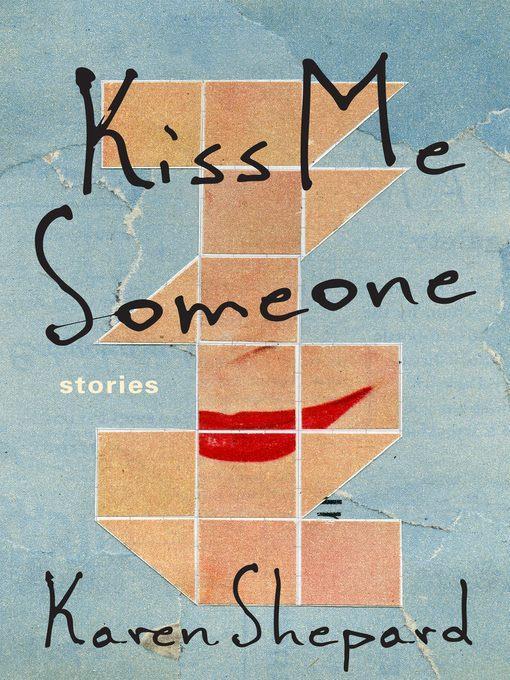
Kiss Me Someone
Stories
کتاب های مرتبط
- اطلاعات
- نقد و بررسی
- دیدگاه کاربران
نقد و بررسی

July 10, 2017
This concise, disturbing collection by Shepard (The Celestials) covers several decades of the author’s work, often focusing on troubling experiences of women in the northeastern United States. Many of the protagonists are seen as “exotic” because of their races (as in “Don’t Know Where, Don’t Know When”) and are ambivalent about their backgrounds. Most of the stories, with their slow-burning openings, rely more on telling detail than on plot. “Jerks” is a litany by the narrator of nasty men whose sexual advances she has accepted. “Girls Only” zooms in on a group of cynical bridesmaids, who, it’s gradually revealed, once allowed the bride to be sexually assaulted without helping her. Two stories are told in the collective voice—in “Popular Girls,” it’s a group of New York private school 10th-graders, and in “The Mothers” it’s a passel of suburban moms of high school basketball players—while other stories are from the points of view of the outsiders these hive minds cast out. The final, wrenching story, “Rescue,” about an accidental death and a dog, widens the world of a brief story out to include an entire community, and is as compassionate as it is horrifying. This is a sharp and memorable collection. Agent: Eric Simonoff, WME Entertainment.

July 1, 2017
Women bear the dark consequences of infidelity, lies, and other betrayals.Novelist Shepard (The Celestials, 2013, etc.) has turned her keen eye to short fiction centered on the underbellies of the lives and relationships of women. The opening story, "Popular Girls," about private school students in New York, begins with an almost anthropological survey: "You know who we are. We're Kaethe and Alina, CJ and Sydney, Stephanie. We're Asian or Scandinavian, white or vaguely black." But if the reader expects an overview of Manhattan mean girls, the story quickly turns even more barbed than that when the popular girls--sophomores in high school--get into a limo with some strange men and end up, via a nightclub, at a strange apartment. Though the collective narrator admits to feeling "uneasy," the story ends, "Do with us what you dare. Do with us what you can." The chill of this ending shadows the whole book. In "Fire Horse," a woman courts an incestuous affair with her brother. In "Girls Only," the memory of their failure to help a friend during a sexual assault haunts a group of bridesmaids. Although many of the stories investigate the tangled aftermath of sexual anguish--from affairs with married men to gang rape--the greatest stories in this collection, "Light as a Feather" and "A Fine Life," both look at relationships between a daughter and a parent. These stories take Shepard's fascination with cruelty and soften those edges. "Light as a Feather" juxtaposes a stillbirth with the narrator's relationship with her mother, who suffers from dementia. "A Fine Line" examines a woman's unusual career path working with chimps and her past as a defector from communist China. Dark and sexually violent, Shepard's work can disturb--but her sharp prose and insights into the human psyche make it worth the read.
COPYRIGHT(2017) Kirkus Reviews, ALL RIGHTS RESERVED.

August 1, 2017
The boldness of the stories in this new collection from Shepard (The Celestials) is derived largely from the sometimes brash and unapologetic women populating the pages. Awaiting the onset of adulthood, they are sexually adventurous and hip to all kinds of trends but verging on either self-destruction or self-awareness or maybe both. "Girls Only" and "Popular Girls" are the most emblematic of these characters, while Zizi of "Don't Know Where, Don't Know When" is the most fully developed. Zizi lives in an apartment bought by her lover and located directly below the residence he shares with his wife. After his death in the 9/11 World Trade Center explosion, Zizi encounters his wife, whose strong personality matches hers. While Shepard's women are flawed, the author's balanced telling of imperfections ranging from selfishness to emotional detachment alongside some very real strengths reveals the "possibility of that best self to be waiting...at the end of the long, unhappy lesson" ("Kiss Me Someone"). VERDICT An accomplished collection. Recommended.--Faye Chadwell, Oregon State Univ., Corvallis
Copyright 2017 Library Journal, LLC Used with permission.

























دیدگاه کاربران